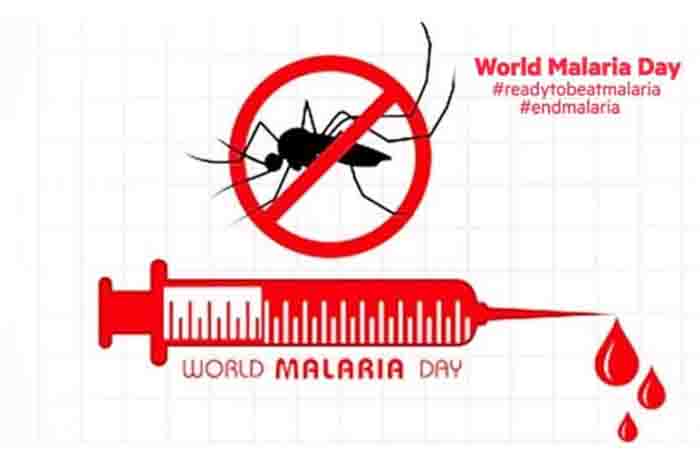
World Malaria Day 2018

Introduction
Malaria has been plaguing humans for more than 400 years. Derived from the Italian word ‘malaria, ‘ meaning ‘bad air’, this disease with its unprecedented consequences has remarkably modeled the world history. Malaria is a disease, which is caused when parasitic protozoa, Plasmodium is introduced into the body of a healthy person when an infected female anopheles mosquito bites him/her.
It is mainly a tropical disease, which can become fatal if it is not diagnosed properly. The disease manifests itself with high fever, chills, sweats, headache, muscle pain and diarrhea. Being a disease of the tropics, the disease has quite a high mortality rate and therefore, the WHO decided to celebrate the World Malaria Day in order to raise awareness among people and to control this deadly disease from claiming more lives.
In May 2007, the 60th session of the World Health Assembly, the decision-making body of WHO, decided to celebrate World Malaria Day on 25th April, which was earlier assigned to Africa Malaria Day. This day is celebrated each year to commemorate the global efforts taken to control this deadly disease. It was born out of the efforts that were taking place all over the African continent to memorialize Africa Malaria Day.
World Malaria Day has been made a part of the 8 official global public health campaigns that are run by the World health Organization, namely World Health Day, World Tuberculosis Day, World AIDS Day, World Blood Donor Day, World Immunization Week, World No Tobacco day and World Hepatitis Day. Nearly 3.3 billion people residing in 106 countries of the world are at a high risk of developing malaria. As of 2015, approximately 627,000 people lost their lives to this disease, mostly living in Africa, Asia and Latin America.
As per the 2015 World Malaria Report, the global tally of deaths due to malaria reached 429,000, and 212 million cases of malaria had been reported annually. Between 2010 and 2015, there was a 21% decrease in the rate of new malaria cases and 29% reduction in deaths due to the same. In the Sub-Saharan Africa, 21% reduction in malaria cases and 31% decrease in death rates were observed.
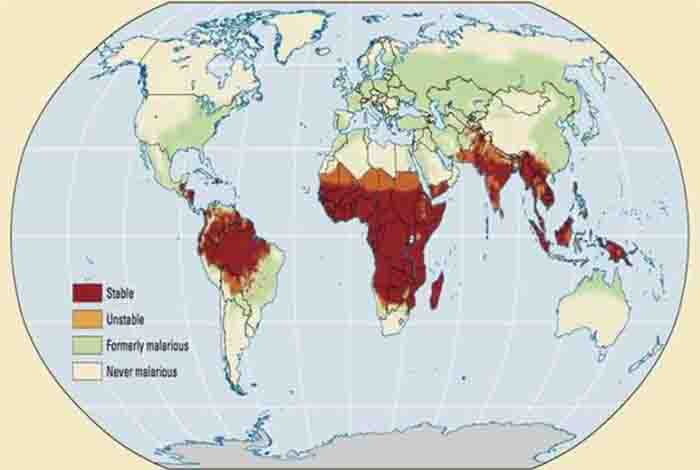
World Malaria Day gives an opportunity to corporations, grassroot organizations and multinational organizations to come together and work on a global platform for the betterment of people suffering from malaria. The day raises awareness in the general public and advocates for better policies to control the disease.
Themes of World Malaria Day
Each WMD focuses at a different theme each year. Past and Current themes of WMD include the following:
- World Malaria Day 2018: Ready to Beat Malaria
- World Malaria Day 2016-2017: End Malaria for Good
- World Malaria Day 2013-2014-2015: Invest in the Future: Defeat Malaria
- World Malaria Day 2012: Sustain Gains, Save Lives: Invest in Malaria
- World Malaria Day 2011: Achieving Progress and Impact
- World Malaria Day 2009-2010: Counting Malaria Out
- World Malaria Day 2008: Malaria: A Disease Without Border
WHO’s Initiative- Global Malaria Programme (GMP)
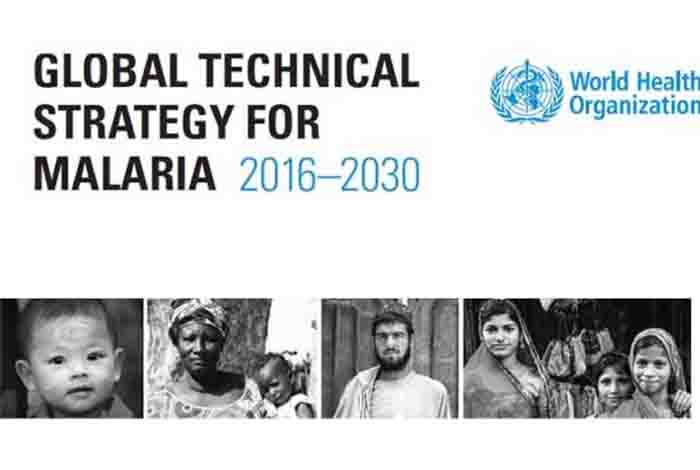
With an aim to curb the havoc, being created by Malaria, WHO came up with a Global Malaria Programme (GMP) in 2010. This programme aimed at reviewing the policy-making process of WHO against malaria. The aim of this reviewing process was to develop a more efficient, rigorous and transparent process to overcome the timely challenges faced by National Malaria Programmes. [1]
To push things forward in the direction of a malaria-free world, an external advisory body, called Malaria Policy Advisory Committee (MPAC) was established in 2011. This committee included 15 Malaria experts, who would lead the meetings held twice a year. The aim of this committee was to provide assistance to WHO in formulating the anti-malaria policies.
Introducing an important technical aid to this Global Malaria Programme, MPAC assisted in the development of a strategy, called Global Technical Strategy (GTS) 2016-2030. This strategy was adopted in the World Health Assembly held in May 2015. GTS emerged as a guide to be used by several countries, where malaria is an endemic. Through the postulates of this guide, a complete control and elimination of malaria can be achieved, hence reducing the global burden of the disease.
The time-line of GTS 2016-2030 corresponds to the UN-Sustainable Developmental Goals (SDG) for 2030. On 25th September 2015, a UN General Assembly was held, wherein 193 countries pledged to attain the Sustainable Development Goals by 2030. These goals addressed a wide range of issues, including hunger, education, poverty, health and many more. In line with the foresightedness of SDG 2030, the Global Malaria Programme aimed to eradicate malaria by 2030.
Global Technical Strategy sets some ambitious-yet-attainable goals to be achieved by 2030. [2] These goals are as follows:
- Reducing the incidences (total affected cases) of malaria by at least 90%
- Reducing the death rate of malaria by at least 90%
- Completely eliminating malaria in at least 35 countries
- Preventing the recurrence of malaria in malaria-free countries
The key points of GTS 2016-2030 are listed below:
- Vector Control: Use and timely replacement of insecticidal nets; use of insecticidal sprays.
- Chemoprevention: This refers to preventing malaria in vulnerable groups, including pregnant women, infants, children under 5 years of age (only for seasonal prevention) and people traveling to malaria-endemic areas.
- Timely Diagnosis and Treatment: Appropriate diagnostic tests should be performed in people suspected of having malaria. A universal access to antimalarial medicines should be ensured to prevent malaria from progressing to a more complicated form.
For more than 60 years, WHO has been leading the globe in the fight against malaria. The organization has provided technical staffs in all the malaria-endemic countries to assist them in eliminating malaria.
The line of action of Global Malaria Programme, to reach the desired targets, is as follows:
- Formulating and circulating guidance and policies to control and eliminate malaria on a global level
- Providing support to the countries while they adapt, adopt and execute the global norms and standards set by WHO to control and eliminate malaria
- Assisting countries in formulating national malaria strategic plans
- Helping countries in developing strong malaria surveillance systems
- Addressing requests from countries to respond to operational and biological emergencies and bottleneck issues
The core entity of Global Malaria Programme is to keep independent scores in order to track the global progress of malaria control and elimination.
With this remarkable initiative by WHO, malaria can be conquered to build a malaria-free world.
World Malaria Day 2018 Theme: Ready to beat Malaria
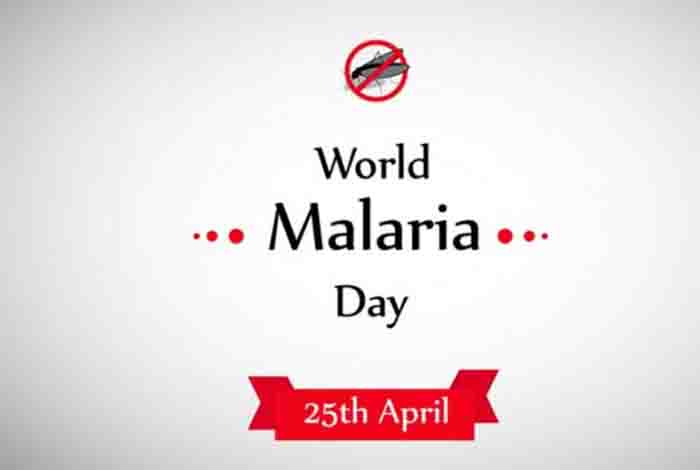
This year’s World Malaria Day is exclusive due to its co-occurrence with the WHO’s 70th anniversary. With this optimistic note, WHO looks back at the seven decades of fight against a horrific disease, i.e., malaria. This year, WHO ponders over the voids that have been left so far in the war against malaria.
With this thought, 2017 World Malaria Report hinted at following unfavorable points:
- The global response to malaria is at crossroads. A halt has come after an unprecedented period of success in controlling malaria.
- The current pace is inadequate to reach the 2020 milestone of the Global Technical Strategy (GTS) 2016-2030.
- Ongoing transmission of malaria in some countries was observed despite continual efforts.
With the worrying trends seen in 2017 reports, this year, WHO calls for an urgent action against this horrid disease by putting in greater investments and expanding the coverage of tools for prevention, diagnosis and treatment of malaria.
With this year’s theme – “Ready to beat malaria” – WHO emphasizes the collective energy and commitment of entire globe to create a malaria-free world.
Supporting this year’s theme, WHO has prepared 7 interviews with leading experts of global health community. [3] The eminent personalities, who voiced their opinions and facts, are as follows:
| Name of the Speaker | Designation | Interview Topic |
| Dr Kesete Admasu | CEO of RBM Partnership to End Malaria | United for Malaria |
| Dr Pedro Alonso | Director of WHO Global Malaria Programme | 7 decades of malaria |
| Mr Bill Gates | Co-Chair, Bill & Melinda Gates Foundation | Stepping up for malaria |
| Dr Matshidiso Moeti | WHO Regional Director for Africa | Beating back malaria in Africa |
| Dr Lynda Ozor | Malaria focal point, WHO Nigeria | A view from the frontlines |
| Dr Arantxa Roca-Feltrer | Head, Monitoring & Evaluation, Malaria Consortium | From bites to bytes |
| Dr Neena Valecha | Director, National Institute of Malaria Research, India | Behind the microscope |
Through these interviews, WHO sheds light on various advances done in tackling malaria and the challenges that still remain in the path of eradicating malaria completely.
Conclusion
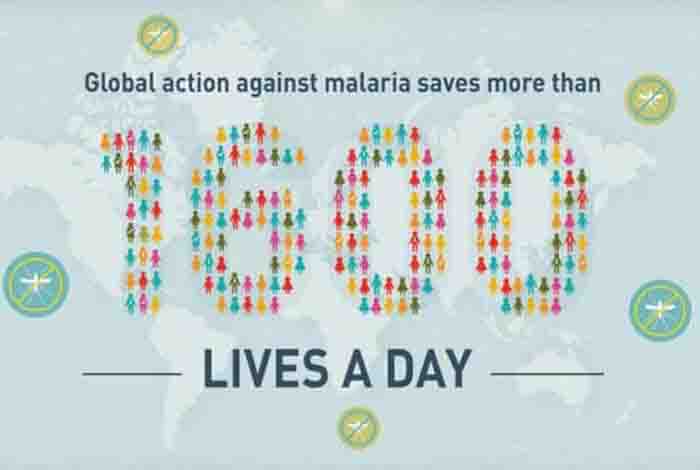
As fatal as this disease can be, malaria is absolutely preventable and treatable. But, the truth is that our initiatives are not keeping abreast with this growing epidemic. To top it all, emergence of drug and insecticide resistant parasites have further added to the plight.
But, hasn’t the world faced such epidemics in the past too? When diseases like TB , polio and smallpox can be eliminated, then why not malaria?
With just a few steps from each one of us, the global scenario of malaria can drastically improve. Use of insecticide-treated mosquito nets and indoor spray of residual insecticides can keep you away from malaria. If suspecting malaria, timely diagnosis and treatment can improve the survival rate. Through antimalarial drugs like chloroquine and quinidine malaria can be well treated in the early stages.[4]
On this year’s World Malaria Day, let’s ask ourselves “Do we see a malaria-free world in the next 10 or 20 years?” Well, there are many factors that play in our favor, including urbanization, better healthcare infrastructure and economic development. But, to be honest, we have a long way to go in this domain. More research and a unified approach can escalate our chances of wiping out this disease from the world.
“Malaria must die, so millions can live.”










